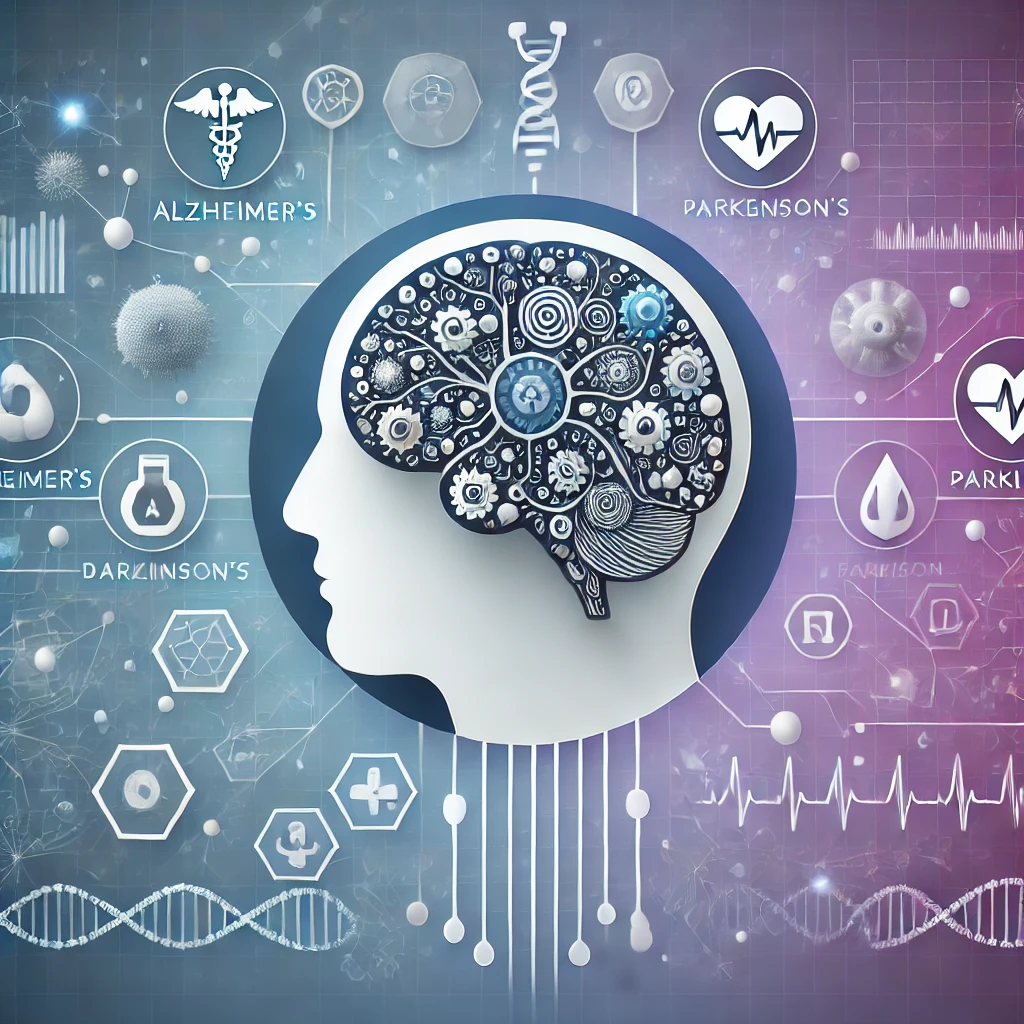Our Services
- Diabetes Mellitus
- Hypertension
- Osteoporosis
- Inflammatory Bowel Diseases
- Hypothyroidism and Endocrine Diseases
- Chronic Respiratory Diseases
- Chronic Neurological Diseases
- Chronic Liver Diseases
- Chronic Kidney Diseases
- Cardiovascular Diseases
- Arthritis and Rheumatic Diseases
- Confidential STD Testing & Treatment
- Women’s Health Screenings
- Men’s Health Screenings
- Obesity
- Vitamin Infusions
- Weight Management

Chronic Neurological Diseases
Chronic neurological diseases affect the brain, spinal cord, and nerves, often leading to progressive decline in cognitive function, movement, or sensory abilities. Common conditions include Alzheimer’s disease, Parkinson’s disease, and epilepsy, each requiring a multidisciplinary management approach.
At our clinic, we focus on symptom improvement, functionality maintenance, and caregiver support to enhance the quality of life for both patients and their families.
Types of Chronic Neurological Diseases
1. Alzheimer’s Disease & Dementia
- A progressive disorder causing memory loss, confusion, and cognitive decline.
- Causes: Buildup of amyloid plaques and tau tangles in the brain.
- Symptoms: Difficulty remembering names, impaired judgment, mood changes.
- Treatment: Cognitive therapy, medications (cholinesterase inhibitors), lifestyle modifications.
2. Parkinson’s Disease
- A neurodegenerative disorder affecting movement due to low dopamine levels.
- Causes: Genetic and environmental factors, aging.
- Symptoms: Tremors, muscle stiffness, slow movements, balance issues.
- Treatment: Dopamine replacement therapy, physical therapy, deep brain stimulation (DBS).
3. Epilepsy
- A neurological disorder characterized by recurrent seizures.
- Causes: Brain injury, genetic factors, infections, unknown origins.
- Symptoms: Seizures, loss of consciousness, muscle jerking, confusion.
- Treatment: Antiepileptic medications, lifestyle changes, surgery in severe cases.
4. Other Neurological Conditions
- Multiple Sclerosis (MS): Autoimmune disease damaging nerve coatings (myelin).
- Amyotrophic Lateral Sclerosis (ALS): Progressive motor neuron disease causing muscle weakness.
- Neuropathy: Nerve damage leading to pain, numbness, or weakness in limbs.
Symptoms of Chronic Neurological Diseases
While symptoms vary by condition, common neurological signs include:
- Memory loss & cognitive decline.
- Tremors, muscle stiffness, and involuntary movements.
- Seizures or episodes of unconsciousness.
- Speech difficulties & swallowing problems.
- Fatigue, mood swings, and depression.
Neurological Disease Management & Treatment
1. Early Diagnosis & Monitoring
- Neurological exams & cognitive tests.
- Brain imaging (MRI, CT scans, PET scans) to detect abnormalities.
- Electroencephalogram (EEG) for epilepsy monitoring.
2. Medication Therapy
- Cholinesterase inhibitors to slow cognitive decline in Alzheimer’s.
- Levodopa & dopamine agonists for Parkinson’s symptom relief.
- Antiepileptic drugs (AEDs) to control seizures.
- Pain management & muscle relaxants for neurological discomfort.
3. Physical & Cognitive Rehabilitation
- Physical therapy to improve movement and prevent stiffness.
- Speech therapy for communication difficulties.
- Occupational therapy to enhance daily living skills.
- Cognitive exercises to delay memory decline.
4. Lifestyle & Nutritional Support
- Brain-healthy diet (rich in omega-3s, antioxidants, vitamins).
- Regular exercise to maintain motor function and cognitive health.
- Adequate sleep & stress management to reduce neurological symptoms.
5. Advanced Treatment Options
- Deep Brain Stimulation (DBS) for Parkinson’s tremors.
- Vagus nerve stimulation for epilepsy control.
- Stem cell therapy & emerging research-based treatments.
Complications of Untreated Neurological Disorders
Without proper management, chronic neurological diseases can lead to:
- Severe memory loss & loss of independence.
- Inability to walk, speak, or perform daily tasks.
- Frequent seizures increasing injury risks.
- Emotional and psychological distress for patients and caregivers.
- Complete loss of motor function in progressive cases (ALS, advanced Parkinson’s).
Advantage Neurological Care
We provide a comprehensive neurological disease management program, including:
✅ Specialized medical evaluations & brain function testing.
✅ Medication management for symptom control.
✅ Rehabilitation programs for mobility & cognitive function.
✅ Caregiver support & counseling for family members.
✅ Collaboration with neurologists for advanced treatments.


Health Tips & Info
- Stay mentally active with puzzles, reading, and problem-solving tasks.
- Engage in regular physical activity to slow disease progression.
- Follow a brain-healthy diet with essential vitamins and minerals.
- Join a support group for guidance and emotional well-being.
- Seek early diagnosis for better management and treatment options.